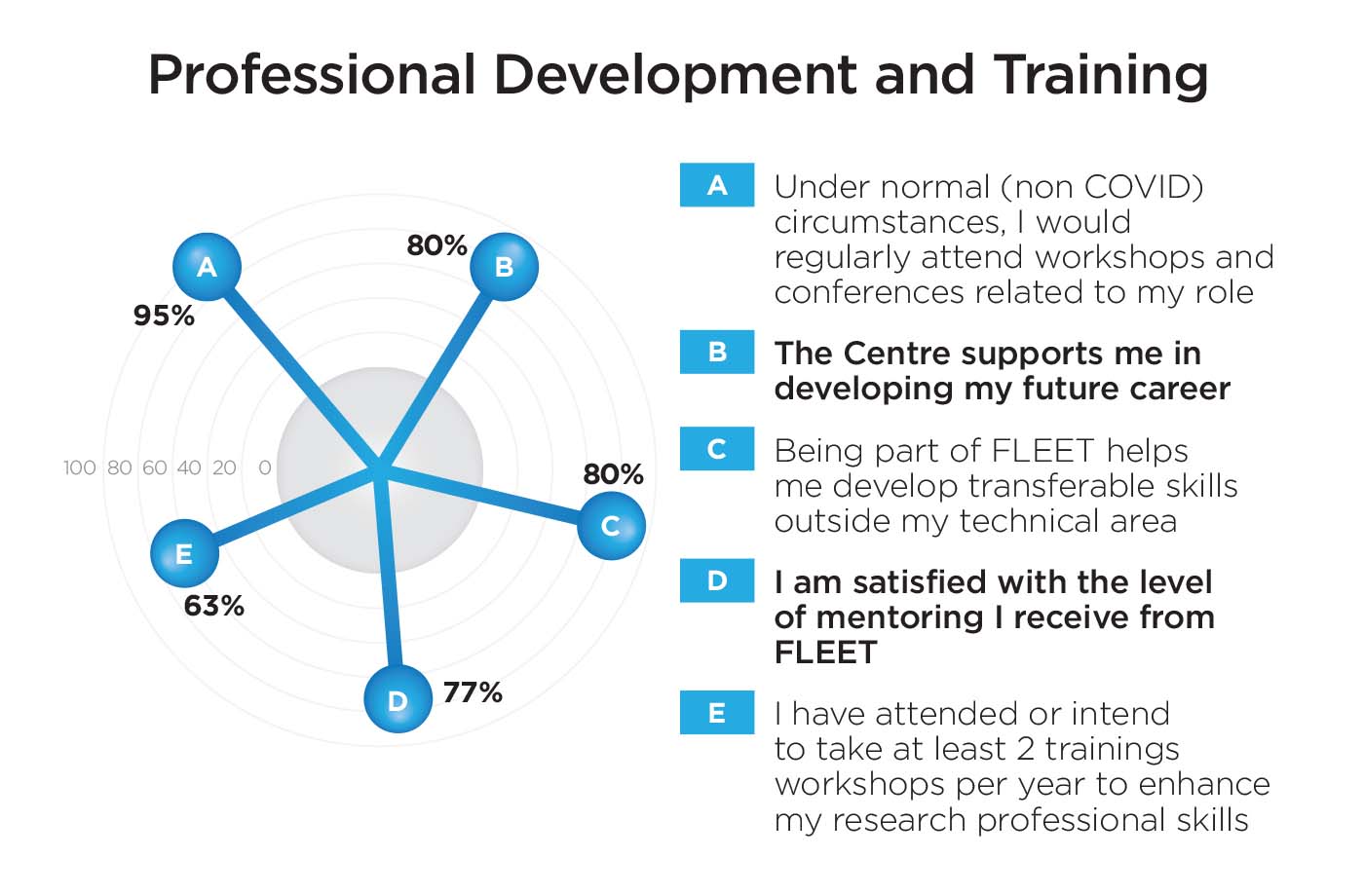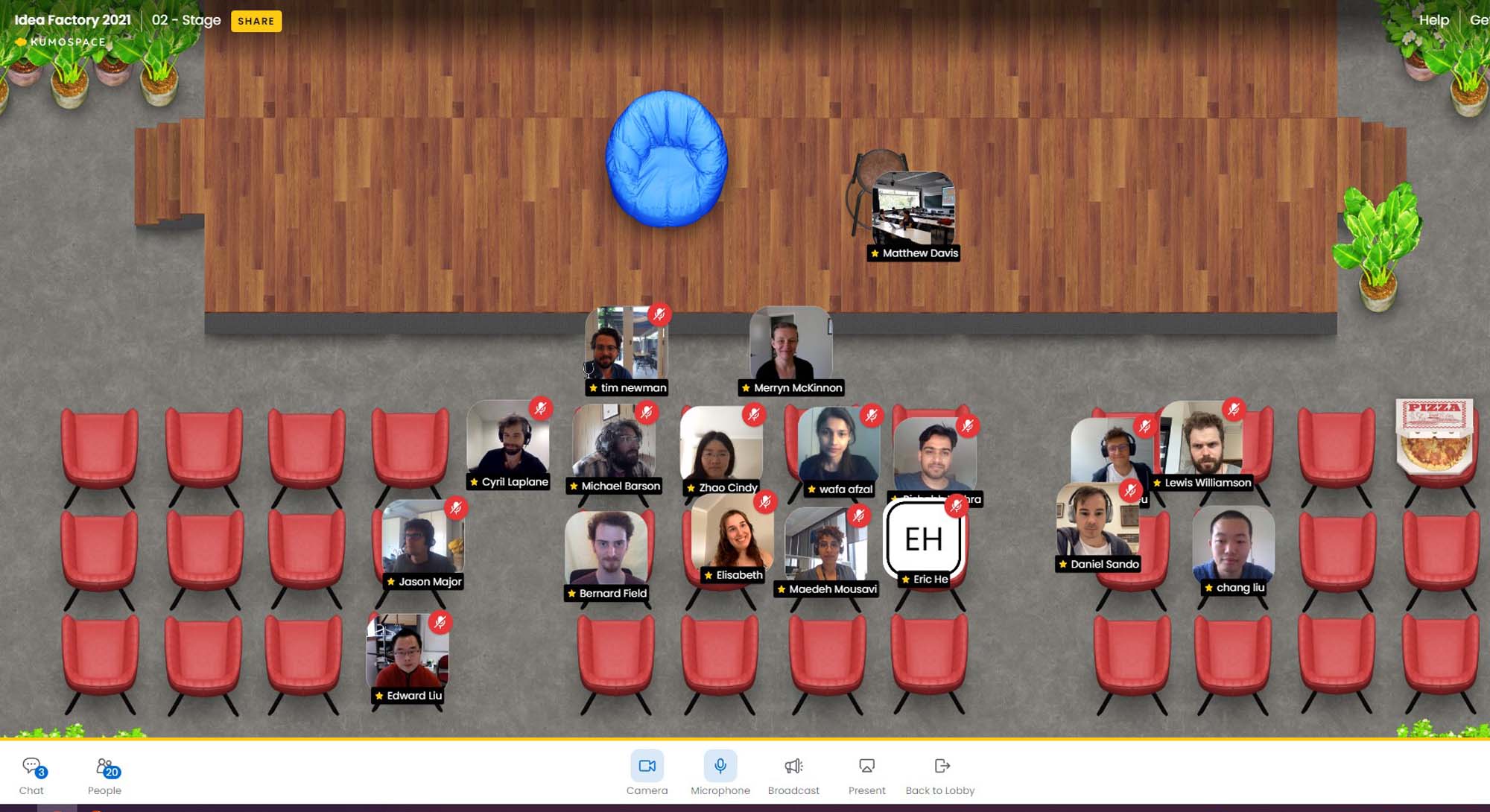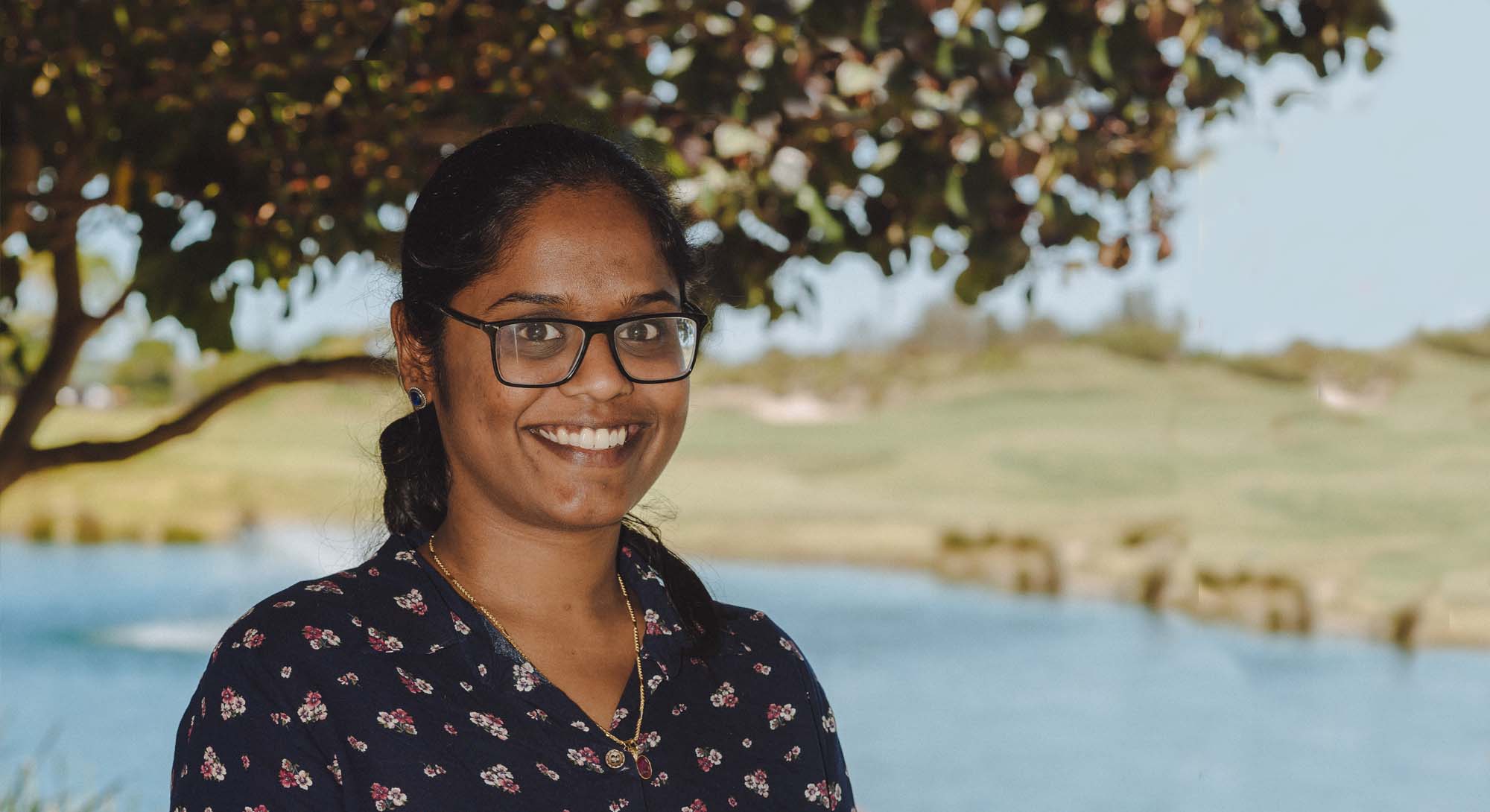Building future science leaders
FLEET is working to develop Australia’s next generation of science leaders.
All FLEET’s students and young researchers receive excellent supervision, are offered world-class training and other opportunities for professional development, and are supported in navigating diverse future career pathways.
The Centre currently supports 56 higher degree by research (HDR) students and 49 postdoctoral researchers, and another dozen research affiliates work on FLEET projects and are invited to Centre training, workshops and events.
PhD students are given the opportunity to have an associated supervisor from one of the other FLEET nodes, which helps with cross pollination of ideas and development of collaborative projects.
Strategic priorities
- Develop world-class training and mentoring programs
- Establish Centre succession planning (see strategic plan p23)
- Facilitate opportunities for research collaboration
- Establish a collaborative culture within the Centre
- Facilitate opportunities for career development in industry
- Identify opportunities for members to be recognised
FLEET will:
- Develop Australia’s next generation of science leaders
- Train researchers in the electronics of tomorrow

FLEET training programs are valued by Centre members. This year’s Centre-wide survey (found that under normal circumstances FLEET members would regularly attend workshops and conferences related to their roles, that they know where to access information about opportunities, and that they believe they can develop new skills within and outside their technical areas.
Despite the impact of Covid, members feel strongly that the Centre supports them in developing their future career (80%), developing new skills in their technical area (80%) and developing transferable skills outside their technical area (80%). Almost 90% of participants found the 2021 Idea Factory valuable.
2021 highlights
- Implementing new mentoring platform Mentorloop
- Running quality technical tutorials, presented by both FLEET ECRs and external experts
- Developing transferrable career skills: Idea Factory.
In 2022 FLEET will…
In 2022 FLEET will conduct strategic evaluation to better understand the impact and effectiveness of the Centre’s training, identifying areas for future improvement. The Education Committee, working with the Communications Committee, will also investigate new digital tools to enable more-effective online training.
FLEET will provide targeted training in research translation, coordinated via the new translation manager translate).
FLEET training programs in 2021
Training workshops were delivered on topics ranging from advanced physics to transferable skills such as career planning, writing, industry engagement and communication.
In 2021, Covid restrictions forced most training to be held online, but where possible FLEET used a hybrid delivery system. As a lasting improvement to the way we work, in 2020–21 FLEET has significantly widened access to training programs. This year, a total of 1254 FLEET members accessed Centre or external training, against a target of 150.
In 2021 the Centre held 12 workshops offering research and professional development opportunities for members, with many workshops also open to students and ECRs outside, or adjacent to, FLEET.
FLEET offers opportunities for ECRs and PhD students to attend and participate in workshops that not only relate to their research but to enhancing their capabilities in other areas (leadership, etc.).
FLEET member survey response
Training in 2021 included:
- Research tutorial Quantum Hall effect and chiral superconductors, conducted by Dr Stephan Rachel (University of Melbourne)
- Building leadership skills (Women and Leadership Australia)
- Venture capital-backed startups, with Antler’s Laura Faulconer exploring the process of high-growth, deep-tech start-ups, including the investors backing them
- Taking charge of your career, run by Dr Charlotte Hurry (former FLEET EO)
- Media and presentations training for members, in collaboration with ARC Centres for Mathematical and Statistical Frontiers (ACEMS) and Fragment-Based Design (CFBD)
- Writing scientific research articles, run by A/Prof Patrick O’Connor (University of Adelaide)
- Applying for a Discovery Early Career Researcher Award (DECRA) panel discussion, with past and present DECRA fellows sharing personal experiences
- Effective personal and communication skills, run by Odyssey Training
- Ascend research impact and industry engagement
- Idea Factory.
The leadership workshops run by Dr Charlotte Hurry were a valuable resource and certainly have opened my eyes to other career opportunities and possibilities.
FLEET member survey response
In 2021 the Centre began a series of talks aimed at strengthening members’ knowledge of issues in industry, with the first three in the series covering research commercialisation, commercialising semiconductor science, and transitioning from academia to commercialisation (see Industry-engagement seminars).
A highlight in equity and diversity awareness training in 2021 was the panel ‘What makes women strong in what they do?’ organised by FLEET Research Fellow Dr Peggy Schoenherr and featuring five FLEET women sharing their personal experiences. FLEET also ran Active bystander training, facilitated by the Monash University Respectful Communities unit.
FLEET members also took the initiative to pursue their own FLEET-relevant training. For example, Python and grant writing workshops.
FLEET’s ambitious science-outreach program, in which all members are asked to do 20 hours of outreach each year, also represents significant transferable-skills development. In the Centre’s 2021 survey, 95% agreed that FLEET's outreach and communication activities provide opportunities to improve their own communication skills.

